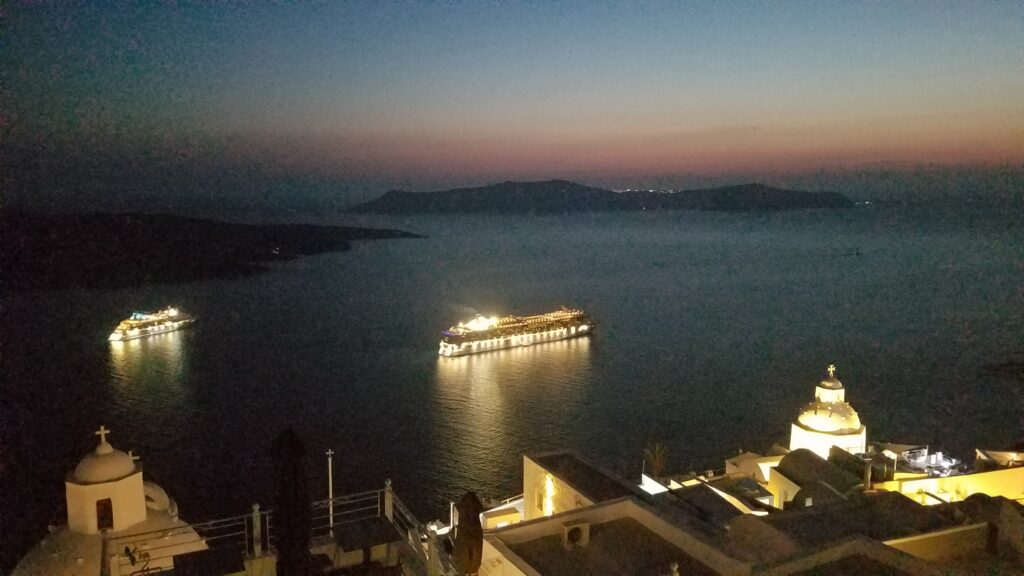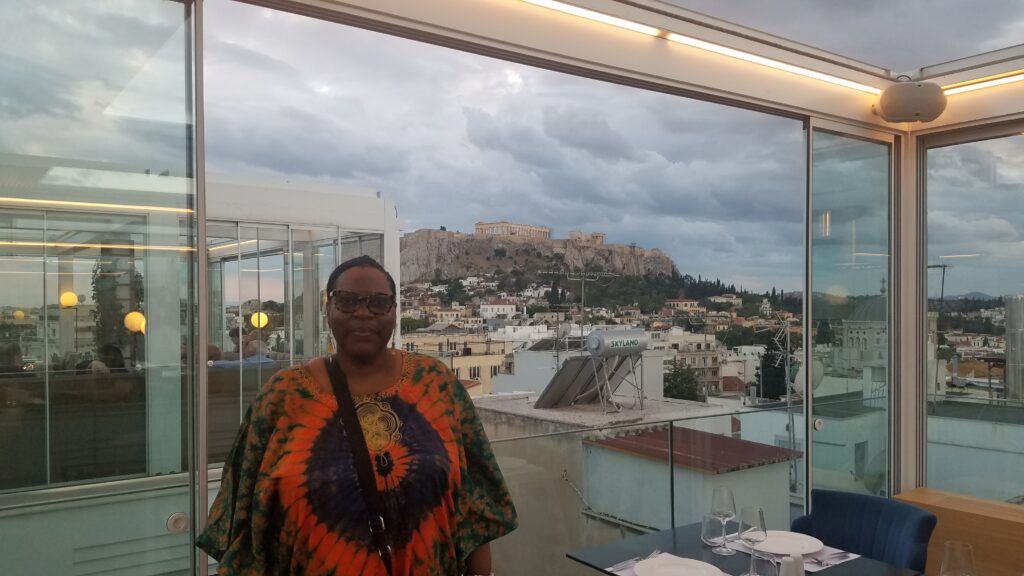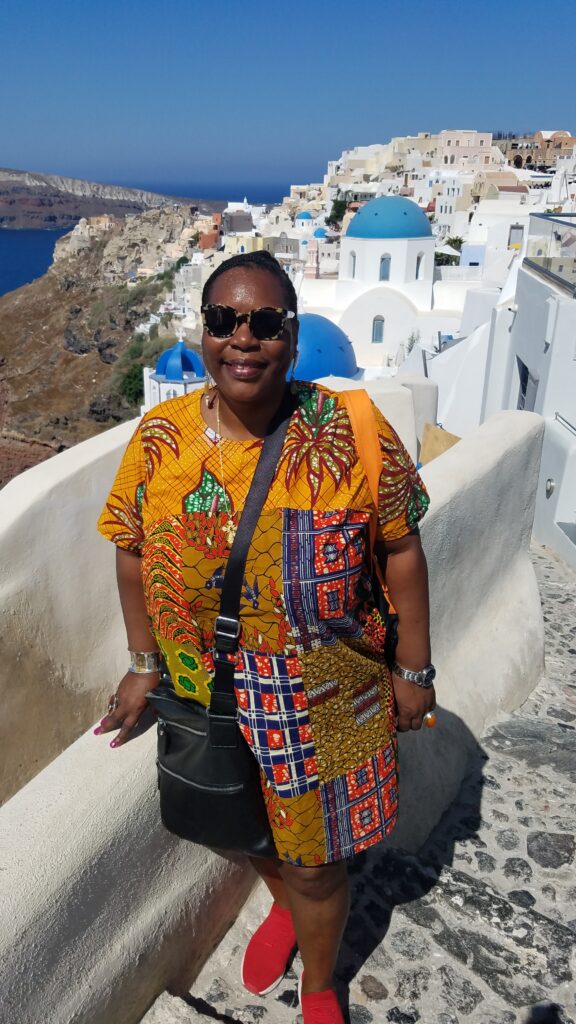This past summer I was on Kamari beach in Santorini, Greece, with two friends, one old and one new. We were New Yorkers seeking respite from our city, our state and even our country when I met Tony. He, a Black man, stood out among the throngs of mostly white tourists from the United States and the United Kingdom, and roving massage therapists who were from mainland China. “Back massage, good for you. Foot massage, good for you.”
“No, thank, no thank you,” my friends and I would say to each one who offered her services, brandishing a beaten-up, plastic-covered map of all the muscles and tendons in the body that need TLC.
Tony from Santorini, as his friends have dubbed him with some irony, stood out because he is a Black man. A Black man from Nigeria. A Black man from Nigeria selling beach trinkets in a white man’s country where many of the residents are rage-filled at the very idea of dark immigrants washing up on their shores en route to England, the United States, anywhere.
Unlike the aggressive therapists and the drunken tourists, Tony approached us softly, tentatively. In this foreign land his race and gender demand a tamping down of the stereotypically bold Nigerian persona.
I told Tony about my visit (more than 25 years ago) to his native land for an elaborate wedding that united two prominent Igbo families. The life of these swank families is as unreachable to Tony as is Greek society, I can only imagine.
When I told Tony how much Nigerians reminded me of Jamaicans with their expansive hospitality and quick tempers he smiled sweetly, flashing identical dimples. He was noncommittal.
“Are they welcoming to you here?” I asked him, a little invasively. He opened his arms wide in an expansive shrug. “I keep everything out there, not in here,” he said, pointing to his heart. “Stay strong,” I said, vapidly, not knowing what to say to someone so far from home making a pittance on the beach selling useless items to silly tourists.
I bleed for Tony from Santorini. I bleed for the complicated land from which he hails. An oil-producing nation whose spoils do not reach most of its citizens. Instead of being that shining beacon of progress in the so-called developing world, Nigeria is awash in corruption and mayhem.
Those with resources flee to Western countries such as England and the United States, and in fact to points all over the globe. Those who comprise the have-not class make the dangerous trek to a better life, bottlenecking at this beautiful collection of islands that doesn’t want them.

But the young people of these Greek islands, too, have dreams of elsewhere. Some have left small communities to join the tourist trade in the cities I visited: Athens, Mykonos and Santorini, home of the Three Blue Domes. A cabbie I met in Mykonos told me that he makes more money running his own car service than the physician in the small rural community from which he hails. And everywhere we went people expressed the desire to visit the United States. Still.


To us, the welcome visitors, the modestly employed members of the hospitality industry were pleasant, curious, and blushingly grateful for any gratuities. Tourism is vibrant from May to October.
Mykonos, my favorite island because of the architecture–white limestone buildings with the bright blue doors, window frames and roofs–has a population of 10,000 that swells to ten times that number in high season.
As someone whose family descends from Jamaica, which depends on tourism just as much as Greece, I saw the workers’ dumbing down to meet the needs of the wanted visitors as sadly familiar. In protest I insisted on using everyone’s real names, which inspired even more blushing: Giorgio, not George, Efpraxia, not Efi, Federici, not Fedi. I spoke them back into existence–out of the invisibility of an industry that benefits the wanted visitor far more than the service provider. One in which they have little voice and can be easily replaced. One in which the corporate conglomerates that write their paltry paychecks are the ultimate big winners.
My trip to Greece was a whim. A reward for making it to a landmark birthday. A frivolity that I felt I had earned. I basked in the beauty of the Greek islands, renewing my vow to spend my final days someplace beautiful, albeit someplace beautiful where I blend in. But meeting Tony centered me, made me discard my superficiality for a moment or two.
“Don’t worry about a thing, ‘cause every little thing’s gonna be alright,” Tony from Santorini sang from Bob Marley’s “Three Little Birds,” tilting his head to the side and closing his sad eyes. Then he dropped to his knees in the glittering black volcanic sand and tied around my wrist a bracelet crocheted in the colors of the Jamaican flag: gold, black and green. Instinctively I knew not to ask the inevitable question posed from tourist to vendor, “How much?” It was a gift.

You must be logged in to post a comment.